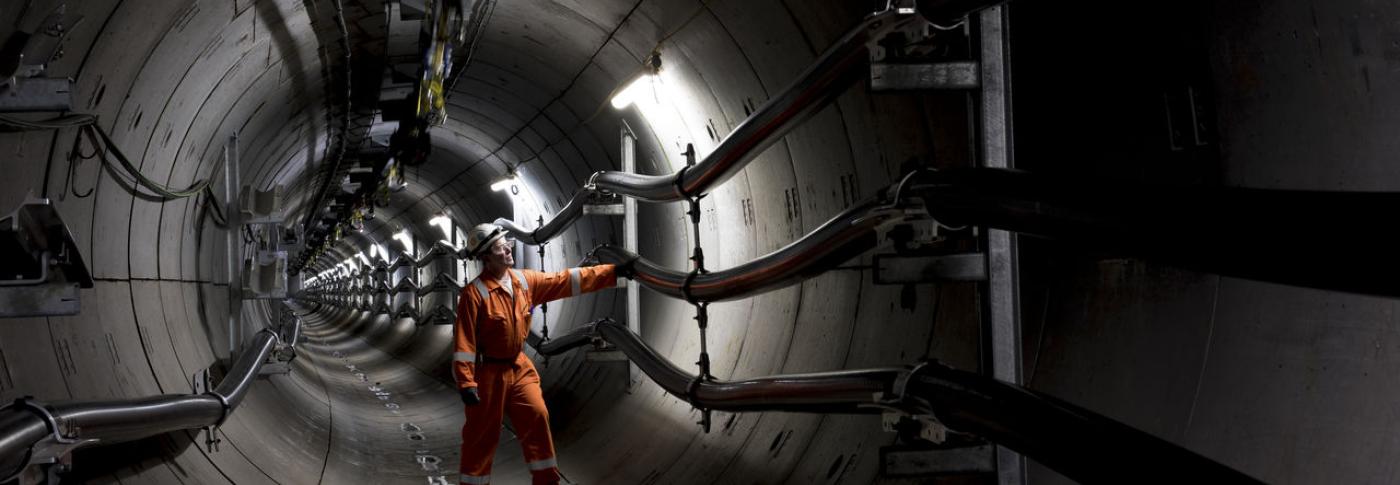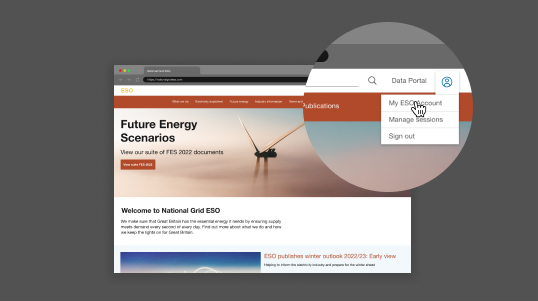
A day in the life of a Cross Border & EU Manager
21 Oct 2020 - 4 minute read
Our colleagues are at the heart of the ESO, working hard to operate a safe and reliable electricity system, whilst supporting the transition to a greener, and more efficient system for future generations.
Tom Ireland gives us an insight into his time at the ESO and tells us what a Cross Border & EU Manager does to help us balance the grid.
When did you join and what made you decide to work for National Grid?
I joined on the graduate scheme 20 years ago! I did a master’s in Electrical Engineering at Warwick University, and was looking for an opportunity to apply what I’d learnt. I moved around different roles in the organisation and realised I enjoyed being the interface between National Grid and external organisations. I love translating internal language and the way we see things and applying them to the wider industry. An example of this is the charges we levy on users of the transmission grid.
I had an opportunity to work as a European policy advisor. This meant representing GB electricity system users. I found it rewarding to learn about our neighbours and their unique energy markets.
Can you tell us about your role as Cross Border & EU Manager?
The interconnector focused role came up just over three years ago. It was a logical move after working with European System Operators. For most of the three years it’s been stakeholder and contract management but I’m in the process of transitioning to a broader role reviewing all the flows into Europe and looking at the market interfaces and how European policy impacts us. It’ll mean dealing with European stakeholders including the EU.
The arrangements we have for Interconnectors is based on a small number which worked well for the old network. Now we have a whole wave of new connections coming along with another one to France (1GW) and then Norway (1.4GW), a third to France (1GW) and Denmark (1.4GW).
I’m working on an Interconnector roadmap to 2025 - It defines our cross border strategic goals and how to manage the changes to system to system energy flows that will be part of GB’s zero carbon ambitions.
An energy system with more renewable generation creates opportunities but also challenges. When we have high levels of wind being generated, we need to be able to supply Europe and also when it’s low we can take it from Europe. We want to build a model for connecting with Europe more freely under a zero-carbon grid. Part of this is create more tools to manage the Interconnectors.
On an average day I’ll have meetings with the European system operators and interconnector developers to discuss future links. I also have a role in explaining to the industry how cross border markets work.
For example, earlier today I met with an energy trading team to talk about our view on the future of cross border ancillary services. I often speak to a wide range of industry stakeholders.
How has the ongoing COVID-19 pandemic impacted your work?
During lockdown, this country experienced up to a 20% drop in electricity demand which proved a challenge to many of us in the ESO. I had to develop some new tools to facilitate the interconnectors to become part of the solution for the low demand.
We temporarily paused a lot of the longer-term work to look at short term challenges caused by the pandemic. Europe had the same low demand challenges, and if we go back to March, mainland Europe was in full lockdown before us.
I spent a lot of time working with our European stakeholders to understand their challenges and needs. The flows over the Interconnectors were completely unusual compared to normal and we had to make sure we could manage that.
Occasionally we had to reduce the capacity on several Interconnectors. I had to discuss this with the Interconnectors who saw an impact on their independent companies. Obviously, they weren’t initially comfortable, but it’s vital we operate the energy system securely.
How has the pandemic impacted your working pattern?
One of the personal challenges was to learn how to work with stakeholders without being face to face. Usually I’d be flying to Dublin, Paris or Brussels.
I thought to myself ‘How do I get the same detailed consideration of the issues over video?’ I realised that it can be done over the phone and video calls from my converted garden shed!
It can be tough dealing with complicated contracts with people who aren’t native English speakers.
I miss the day to day contact with my wider colleagues. Those ‘watercooler’ chats where you pick up the office and industry news. It’s tough working from home with two energetic kids!
The company are supportive of flexible working which has been great.
I mentioned that I used to travel a lot. I’ve realised that my commuting was dead time and I’ve been able to get though my backlog in my shed! When we get back to normal it’ll make me think long and hard about whether I need to travel so much and if it’s more efficient to spend additional time working from home.
